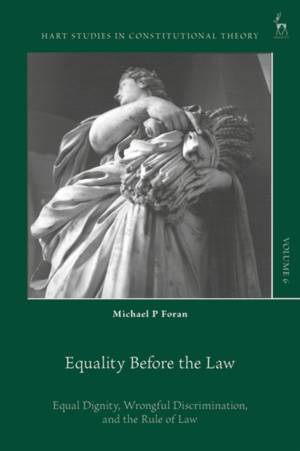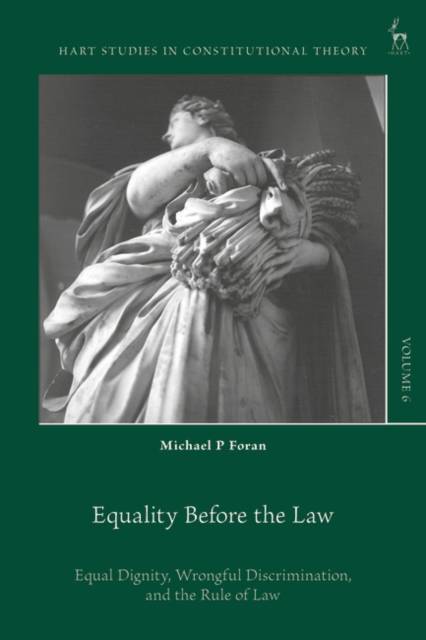
- Retrait gratuit dans votre magasin Club
- 7.000.000 titres dans notre catalogue
- Payer en toute sécurité
- Toujours un magasin près de chez vous
- Retrait gratuit dans votre magasin Club
- 7.000.0000 titres dans notre catalogue
- Payer en toute sécurité
- Toujours un magasin près de chez vous
195,45 €
+ 390 points
Description
This book presents a defence of the value of equality within law which is neither purely formal nor an entirely speculative theory of justice. It does this by combining a theoretical with a doctrinal project.
At the theoretical level, it argues that there is a distinct and meaningful conception of equality before the law which can be separated from concerns of distributive justice. It therefore rejects the claim that legal equality is merely formal. Rather, it is grounded in the equal moral status of all legal subjects. The demand that individuals be treated in accordance with the principle of equality before the law, then, requires that they not be treated in ways that would deny their equal moral standing. This principle of moral equality is the fundamental normative basis of the rule of law.
This general claim is applied, in the second half of the book, to antidiscrimination law. It is argued here that the wrong of wrongful discrimination consists in implicit or explicit denial of the equal moral status of legal subjects. This is also a core wrong that the common law seeks to remedy via judicial review and is thus intimately tied to legality itself.
In the final chapter, these two strands are brought together to defend the idea that law is a public asset which must be directed towards advancing the best interests of those it governs. This kind of equality principle, one which sets the outermost limits of the use of public power, must look beyond individual rights claims. It manifests a fundamental commitment to substantive equality - manifest in a commitment to collective flourishing - without tying it to group-based distributive concerns which arise from distinct social and historical contexts and require the exercise of political authority to choose among a range of plausible options for their resolution.
At the theoretical level, it argues that there is a distinct and meaningful conception of equality before the law which can be separated from concerns of distributive justice. It therefore rejects the claim that legal equality is merely formal. Rather, it is grounded in the equal moral status of all legal subjects. The demand that individuals be treated in accordance with the principle of equality before the law, then, requires that they not be treated in ways that would deny their equal moral standing. This principle of moral equality is the fundamental normative basis of the rule of law.
This general claim is applied, in the second half of the book, to antidiscrimination law. It is argued here that the wrong of wrongful discrimination consists in implicit or explicit denial of the equal moral status of legal subjects. This is also a core wrong that the common law seeks to remedy via judicial review and is thus intimately tied to legality itself.
In the final chapter, these two strands are brought together to defend the idea that law is a public asset which must be directed towards advancing the best interests of those it governs. This kind of equality principle, one which sets the outermost limits of the use of public power, must look beyond individual rights claims. It manifests a fundamental commitment to substantive equality - manifest in a commitment to collective flourishing - without tying it to group-based distributive concerns which arise from distinct social and historical contexts and require the exercise of political authority to choose among a range of plausible options for their resolution.
Spécifications
Parties prenantes
- Auteur(s) :
- Editeur:
Contenu
- Nombre de pages :
- 232
- Langue:
- Anglais
- Collection :
Caractéristiques
- EAN:
- 9781509964949
- Date de parution :
- 14-12-23
- Format:
- Livre relié
- Format numérique:
- Genaaid
- Dimensions :
- 156 mm x 234 mm
- Poids :
- 498 g

Les avis
Nous publions uniquement les avis qui respectent les conditions requises. Consultez nos conditions pour les avis.






